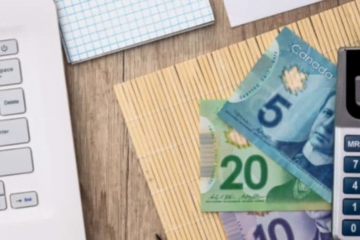I’ve worked in the insolvency field for over 40 years. In my role as a Licensed Insolvency Trustee, I am often asked about ‘life after bankruptcy’. Here’s the ‘inside track’ on the commonly asked question, “Buying a House after Bankruptcy — is it possible?”
Can You Buy a House After Bankruptcy?
Yes, it is possible. In fact, it’s probably easier to buy a house than to get a credit card after a bankruptcy. But always bear in mind that the greater the down payment you have, the more options become available to you.
Here are the things you need to know about purchasing a home after bankruptcy:
CMHC Insurance:
- Most mortgages are insured by Central Mortgage and Housing Corporation (CMHC). ‘CHMC insured’ means that if you default on your mortgage the bank can make a claim for the loss through the CMHC.
- The CMHC check if you have gone through a foreclosure. If you have they may apply special conditions for approving insurance of your mortgage.
- When you have been discharged from bankruptcy for two years or more (and assuming you haven’t gone through a foreclosure in the bankruptcy process) CMHC will look at your ability to pay back a mortgage. They will decide if you can support the mortgage payments and approve you for a mortgage limit. You can then shop for a house based on that limit.
Alternatives to Bank-Based Mortgages:
Banks are not your only option for getting a mortgage. It depends on the condition of the market, but you may have the option to get a ‘vendor take-back mortgage’. That’s where the person selling the house is anxious to sell it and offers funds to help facilitate the sale. It doesn’t happen a lot, but it’s not that unusual.
You may also find a home that is being offered on a rent to own basis. This means the seller offers to rent you the house and apply all or a portion of the rental payments towards the purchase of the house. While you are renting, you can work on building up a down payment and eventually buy the house with a conventional mortgage.
There is also the standard, conventional mortgage where you save up a down payment of twenty percent of the value of the property. In this instance, the bank is much more likely to give you a mortgage, simply because you have saved that much money. Banking money and proving your ability to create realistic budgets and control your finances, is going to be key in this scenario. With a twenty percent down payment, your mortgage doesn’t have to be CHMC approved.
What Will the Bank Want as Proof that Your Bankruptcy is Over?
Once you complete a bankruptcy and get discharged, your Licensed Insolvency Trustee (LIT) will issue a certificate of discharge. It is important that you keep your copy of this certificate. I always recommend that you put it in the same place you store other official documents, like a marriage certificate, or original birth certificate.
However, if you do not retain a copy of this document, it’s easy enough to get a replacement or a certificate from the superintendent of bankruptcy’s office (OSB). There is also the option of contacting any of the credit reporting companies, TransUnion or Equifax, for example. These companies automatically get information from the OSB, about people who go bankrupt, as well as their discharge information. You may have to pay a small fee for replacement documents.
What Type of Proof Do Lenders Need to See that You are No Longer a Credit Risk?
Bear in mind that all financial institutions, whether they are banks or loan companies, are in the business of risk management. They know they are taking a risk when they loan out money, how big a risk they wish to take, is based on specific criteria.
These are the basic criteria lenders use to assess risk:
- Credit history – How have you used credit since your discharge? It is essential that you have demonstrated responsibility for any credit you have used during this period.
- Employment situation – Have you been steadily employed? If you’ve been jumping around from job to job, lenders will be a little concerned that your income is not sufficiently stable. Generally speaking, two years with the same employer is considered stable employment.
- Financial management – How do you manage your financial resources? Sometimes people with reasonably good incomes (even after experiencing a personal bankruptcy) don’t manage their resources well. Things like late payments on rent or utility bills would be an indication that you were NOT managing your finances well, post-bankruptcy. Proof that you are managing your money well, goes a long way to proving you are a good risk.
- Purpose of the loan. If you’re going to borrow $10,000 for a trip to Hawaii that’s one thing, but if you’re going to borrow it to buy a good used car that’s another. The car has retained value, the holiday – none. The second you step on the airplane your net worth drops by ten thousand dollars. When you buy a car, as you drive it off the lot it goes down in value, but there is some retained value. All of these criteria are used to evaluate the lender’s risk. A house poses the least risk to the lender, particularly if you have a downpayment. Property tends to hold its value or rise in value. It also can’t be carried off anywhere. Thus a mortgage might be the easiest credit to secure after bankruptcy.
Finance companies are another source of loans and they’re prepared to take more risk. However to cover themselves for this greater risk they charge a higher rate of interest. Some finance companies charge as much as 38.5% which can become a huge burden on your ability to repay the loan. So if you can, avoid these higher rates of interest by satisfying the banks. That is your best option, obviously.
Will You Need to Come Up with a Larger Down Payment Because of a Past Bankruptcy?
The size of the down payment does matter. If you are able to make a ten percent down payment on a house for example, as opposed to the minimum of five percent, that lends more credibility to you when you’re asking for a mortgage.
Final Thoughts
I think people have to sit down and do a really careful budget. Not just a monthly budget or a yearly budget but look at three or four years down the road. Owning a house is expensive. Property taxes are a significant and often overlooked expense. There is also the upkeep. Buying an older house means you have to ensure you can maintain it and not allow it to fall into disrepair due to a lack of money.
One of the most common challenges homeowners face is becoming ‘house-poor’. They have purchased the biggest house that they could afford, without calculating all the additional expenses involved. There isn’t enough money left over for the other things that make for a decent standard of living.
Filing for bankruptcy doesn’t mean you have to put a halt on the rest of your life. A Licenced Insolvency Trustee can walk you through how to buy a home after bankruptcy.
The good news is that becoming a homeowner after bankruptcy is entirely possible. Pay careful attention to the factors I have shared here and you will be in good shape for becoming a homeowner once again.
Free Consultation!
Contact us for a free consultation to see how we can help you get out of debt.
Click here to make an appointment for your free consultation.

















